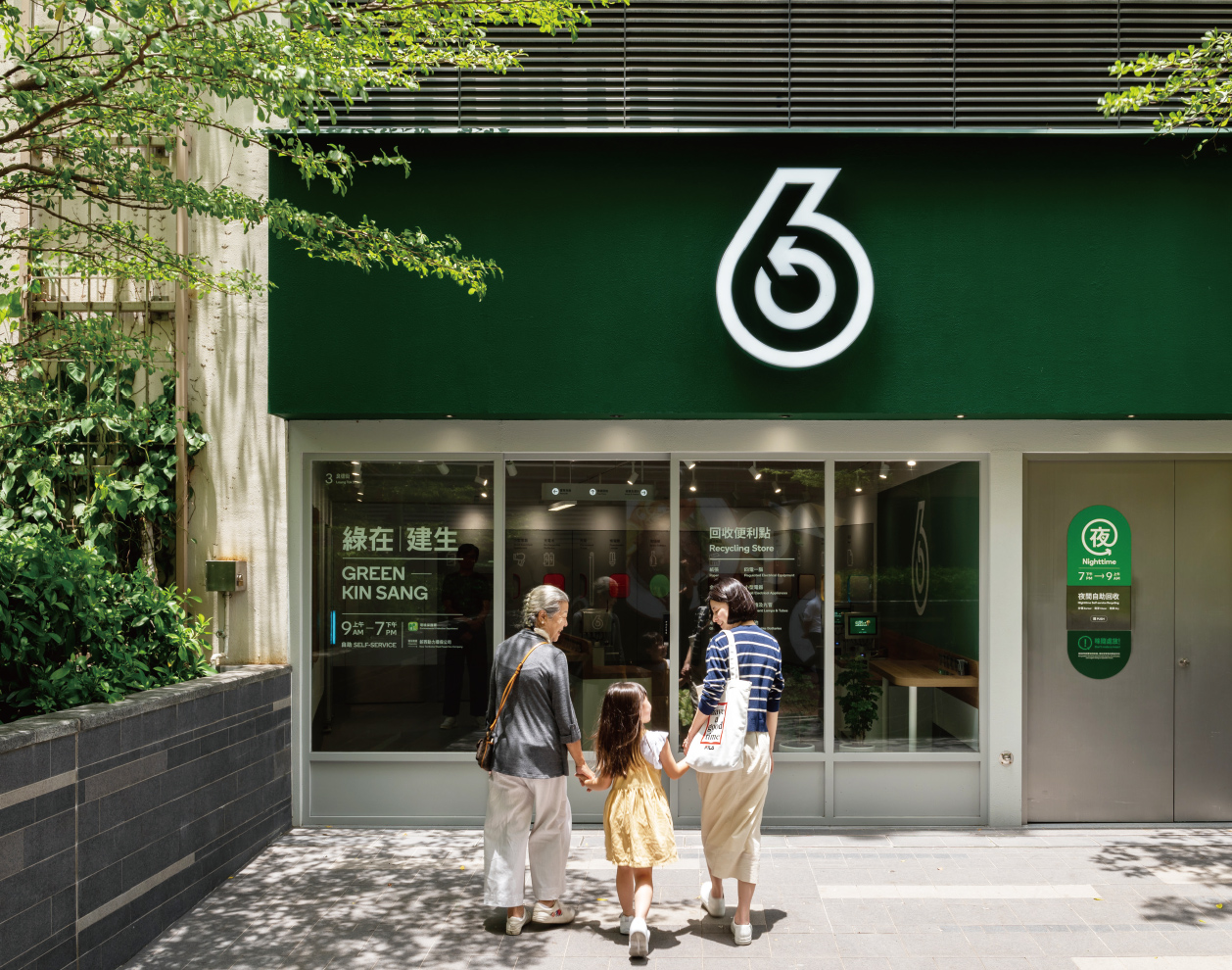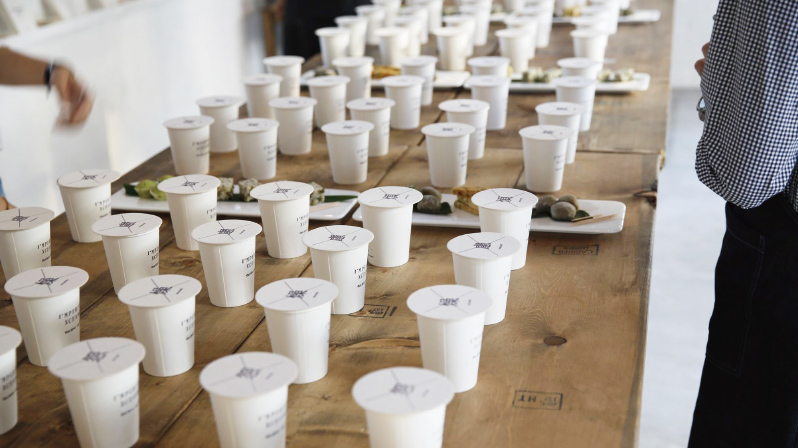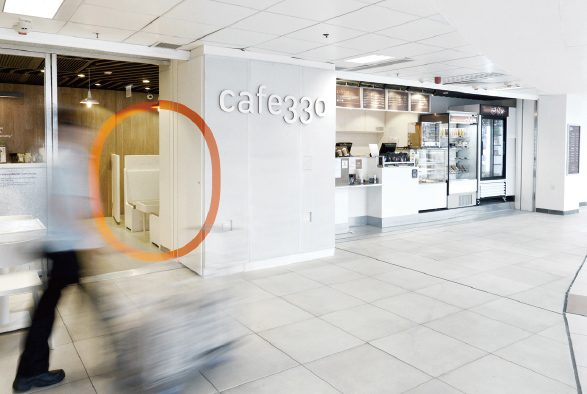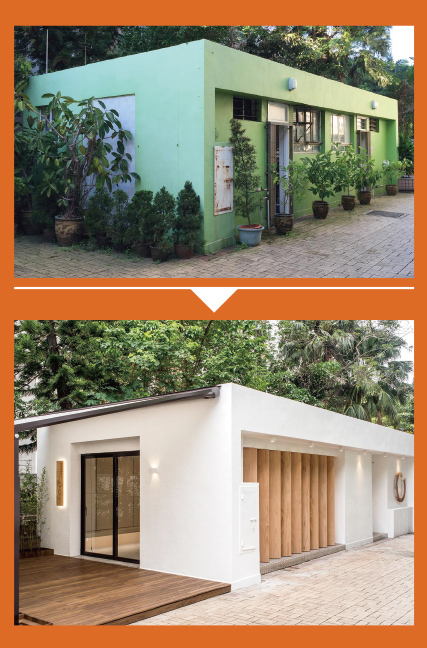和林偉雄 Eddy Yu (left) and Hung Lam.jpg) According to the Global Wellbeing Report published by a well-known Canadian sports brand last year, nearly three out of every five employees interviewed in Hong Kong pointed out that high work pressure is the root cause of poor personal physical and mental wellbeing. No wonder some people say that blessed are those who have a job they love.
According to the Global Wellbeing Report published by a well-known Canadian sports brand last year, nearly three out of every five employees interviewed in Hong Kong pointed out that high work pressure is the root cause of poor personal physical and mental wellbeing. No wonder some people say that blessed are those who have a job they love.
Based on this criterion, Eddy Yu and Hung Lam, both co-founders of CoLAB, are blessed. They co-founded design company CoDesign in 2003 to design products for ordinary businesses. Over time, they came up with the idea of giving back to the society through their profession. It was on this basis that the CoLAB branch was set up in 2010. They revealed that most of the company’s projects are now geared towards promoting social development.
Pace at work gradually became more steadfast
 “Design is something very imaginary. My pace at work has suddenly become more steadfast since I decided to use design to promote change in society,” said Lam to describe his current career status. It has not been easy to be able to find satisfaction at work.
“Design is something very imaginary. My pace at work has suddenly become more steadfast since I decided to use design to promote change in society,” said Lam to describe his current career status. It has not been easy to be able to find satisfaction at work.
Looking back at the beginning, the company could not survive on ideals alone as it had employees and needed to operate. Therefore, Yu and Lam adopted a two-pronged approach in the initial stage, continuing to serve traditional customers on the one hand, while exploring new possibilities on the other. They said that their first experimental project came about because they took the initiative to ask a non-profit organization if it needed help.
 The satisfaction that money cannot give
The satisfaction that money cannot give
They gradually received opportunities to work on some large-scale projects. One example is GREEN@COMMUNITY, which is a community recycling network serving various districts across Hong Kong. Another example is the Hong Kong Museum of Art, which was renovated and reopened a few years ago. It is also one of CoLAB’s proudest projects. These large-scale projects drive CoLAB to continue putting its philosophy into practice and it even has spare capacity to serve some target customers that have limited resources.
 Yu and Lam revealed that some target customers they contacted admitted their resources were limited. Therefore, they sometimes adopt a profit-sharing cooperation model under which the other party makes payment only after earning a certain amount of revenue. Certainly, there are also some projects where it is difficult to obtain tangible returns. One example is a government-aided primary school with a Buddhism background. When its principal came to visit, he lamented that today’s students are under great pressure, so he urgently wanted to renovate the school to give students a better campus life. Despite the lack of resources, they worked together to apply for funding from different organizations. It took three years, but the school finally received a donation from a charity organisation to renovate a meditation room for the benefit of its students.
Yu and Lam revealed that some target customers they contacted admitted their resources were limited. Therefore, they sometimes adopt a profit-sharing cooperation model under which the other party makes payment only after earning a certain amount of revenue. Certainly, there are also some projects where it is difficult to obtain tangible returns. One example is a government-aided primary school with a Buddhism background. When its principal came to visit, he lamented that today’s students are under great pressure, so he urgently wanted to renovate the school to give students a better campus life. Despite the lack of resources, they worked together to apply for funding from different organizations. It took three years, but the school finally received a donation from a charity organisation to renovate a meditation room for the benefit of its students.
 Virtuousness comes before wealth instead of the other way around
Virtuousness comes before wealth instead of the other way around
More companies must care about social development with the rise of the ESG concept, which is a positive thing in the view of both Yu and Lam. But in recent years, some people have begun to advocate the idea of “economy of goodness” that is more in line with what they have in mind, i.e., engaging in economic activities from an altruistic perspective. Yu and Lam understand that life is short, so instead of waiting to get rich before doing good deeds, they should think about how to make money by doing good deeds, thus achieving a win-win situation in which the soul, profit and society all benefit.
Yu and Lam specifically mentioned their long-running project “I’MPERFECT”. The purpose of the project is to arouse people to think about the definition of perfection and imperfection through special design. At one point, they partnered with Oi! (Oil Street Art Space), where the venue featured an herbal tea shop. At the opening ceremony, the guests were each given a piece of paper with several adjectives printed on it. They could exchange the piece of paper for a corresponding cup of herbal tea if they circled the adjectives that described their situation.
In fact, isn’t it just like our society? There are always many imperfections around. Yu and Lam, who both observe social symptoms every day, present Hong Kong with designs that are just like herbal tea, with the hope to slowly clear away excessive heat and toxins from our society.




